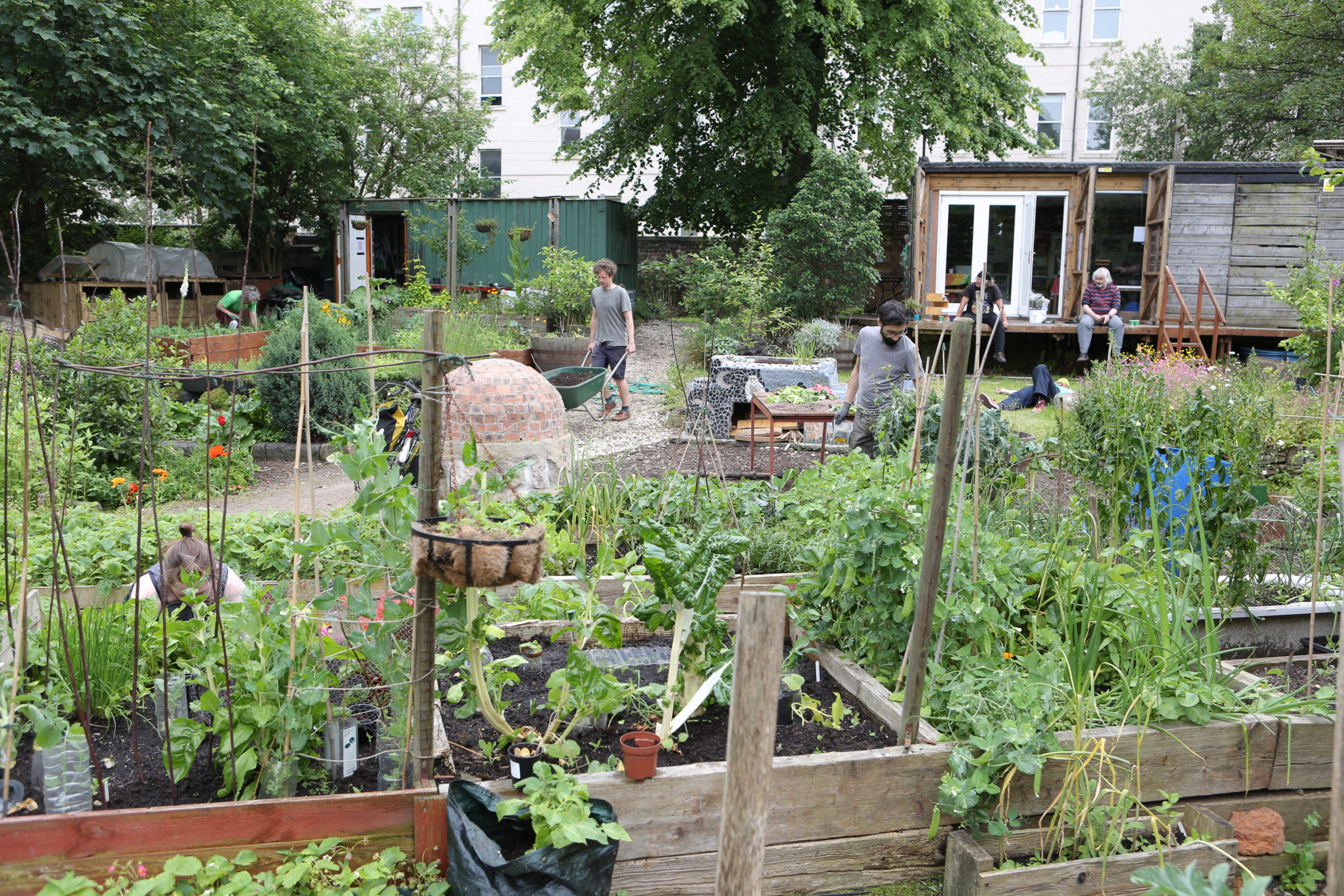
Social prescribing of community urban food growing: transforming citizen health, neighbourhoods and futures
Hosted by Elizabeth Westaway with social and community farm projects.
There has been a huge rise of interest in social prescribing across the UK and particularly within the northern context. The NHS defines social prescribing as a type of personalised care, with people having choice and control over the way their care is planned and delivered, based on what matters to them and their individual strengths and needs.
This is a major shift in how people, professionals and the healthcare system interact, putting the patient at the centre of their care and their community.
People are referred to a link worker who connects them to groups and activities in the community that can offer support.
Social prescribing acknowledges that people’s health is determined by a range of socio-ecological factors, and tries to address their needs more broadly. By supporting people to take greater control of their own health, instead of being prescribed medication, social prescribing is an effective way of alleviating different health conditions.
Social prescribing of community urban food growing has gained traction over the last few years as an effective intervention for improving people’s physical and mental health, and emotional well-being, with numerous studies supporting this.
The combination of getting outside, being re-connected with nature, meeting new people, making friends, growing seasonal fruit and vegetables, having a purpose, developing a sense of community and belonging, and sharing a healthy, nutritious meal together all have positive benefits for patients and local people. Community urban food growing can also provide learning opportunities, empower people, support grassroots activism and is increasingly being adopted in urban agriculture.
This session showcased several social prescribing of community urban food growing projects, shared lessons learned and potential for replication; transforming citizen health, neighbourhoods and futures. Projects showcased included: the Royal Horticultural Society’s new garden (Salford), Northern Roots (the UK’s largest Urban Farm) (Oldham), Horton Community Farm (Bradford) and Woodlands Community Development Trust (Glasgow).
Speakers/hosts:
Dr Michael Hardman, an urban geographer, co-leads the Salford Care and Urban Farm Hub. He has research interests in radical green infrastructure interventions and local food growing, and its impact on communities.
Dr Elizabeth Westaway is an international public health and nutrition specialist, who has worked as a practitioner, researcher and consultant in academia, NGOs and the UN on health, nutrition, food security and agriculture projects in emergency and development contexts of sub-Saharan Africa and Asia. She has a PhD in International Development from the University of East Anglia, and was formerly on the steering group of People Food Power and Nottingham Good Food Partnership. Her current research interests are food quality, social prescribing and regenerative healthcare.
Dr Michelle Howarth leads the University of Salford’s Social Prescribing Hub, sits on the National Social Prescribing Network and works with Greater Manchester Natural Capital exploring evidence-based approaches.
Charlie Gray is a Director, and Community and Training Coordinator at Horton Community Farm Cooperative Ltd, ‘a LAND Permaculture centre for food growing and community resilience’ in Bradford City Centre. She has worked there for over ten years, developing their programmes. The farm works across five strands: education, wildlife, therapy, volunteering and food growing. She has designed, fundraised for and delivered numerous pilot projects for the cooperative, working with partner organisations, offering services to the local community. Projects include forest schools and outdoor education, horticultural therapy and the recent ‘Mindfulness Garden’, now working to consolidate commissioned services with commissioners, GPs and Social Prescribers.
Tim Cowen has worked in the voluntary sector for over 25 years. Since 2011 he’s been the manager for Woodlands Community Development Trust, a Glasgow-based environmental charity. Here he’s overseen the development of their highly successful community garden and community café, as well as the creation of Woodlands Workspace, a community building and events space. During the COVID-19 pandemic, Woodlands Community have expanded their front-line services, with an increased focus on mental health and well-being. Tim has a Law degree and Masters in Welfare Law. Later this year, he will be self-publishing his first novel ‘Banquet of the Beasts.’
You can read a blog post about the outcomes of the session here.
